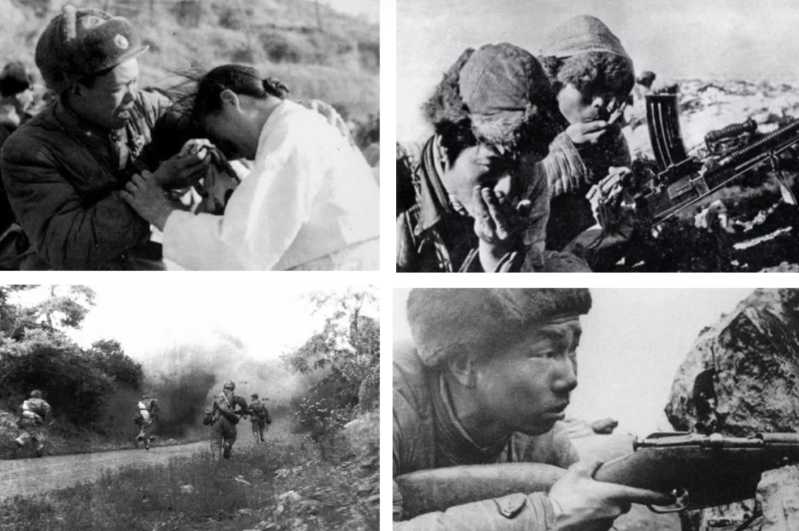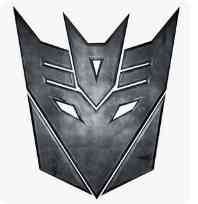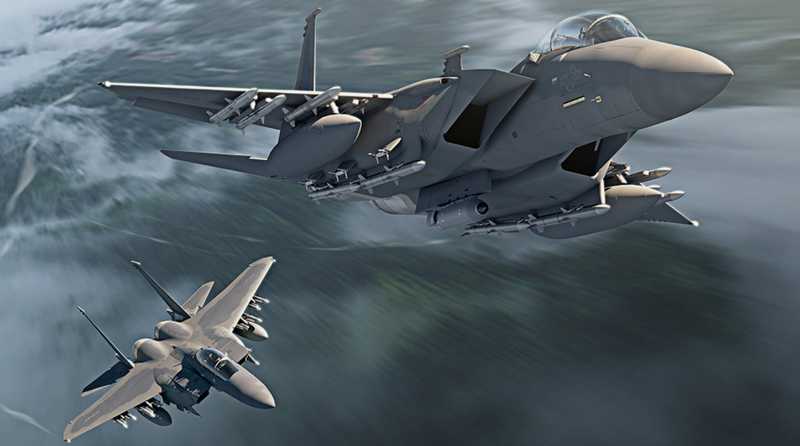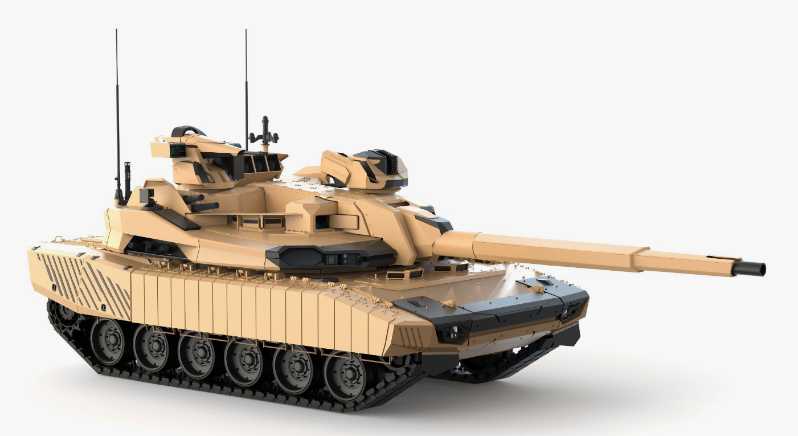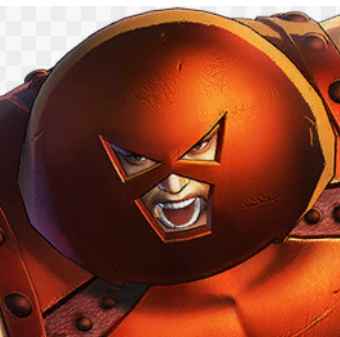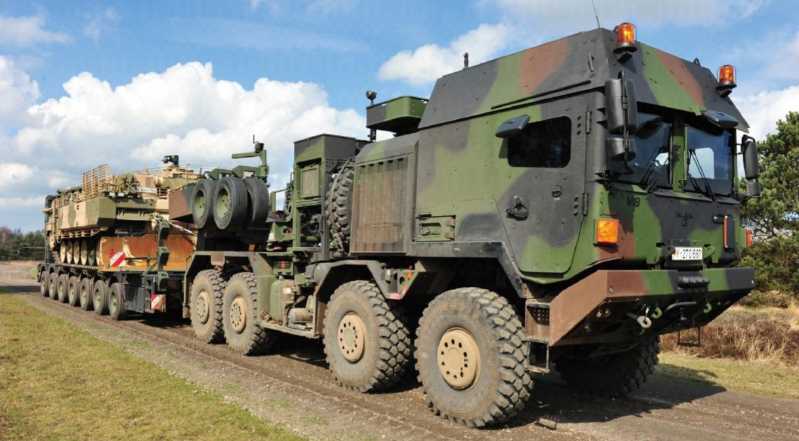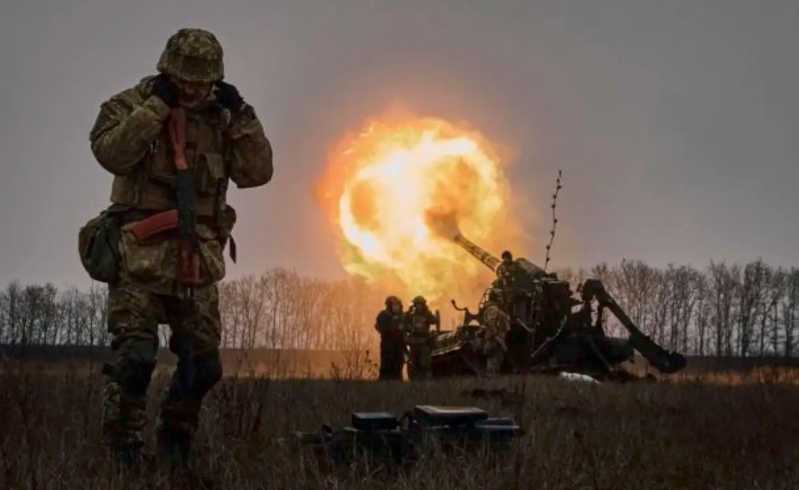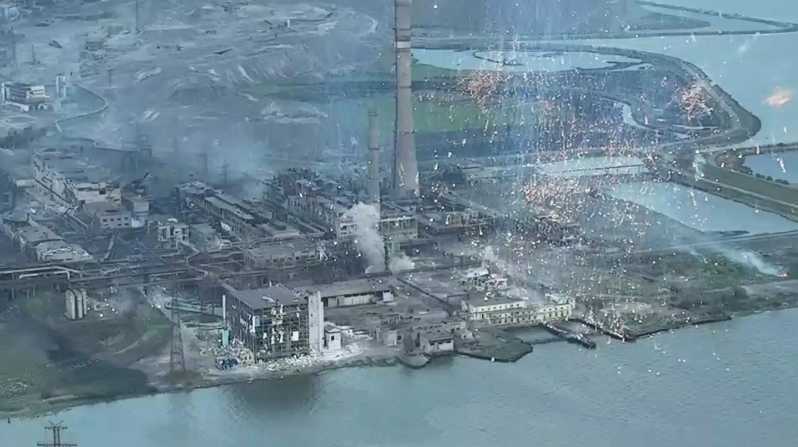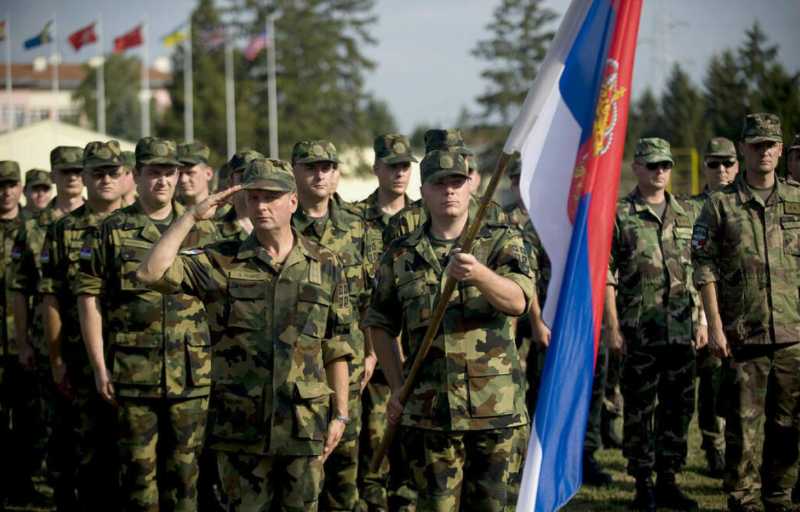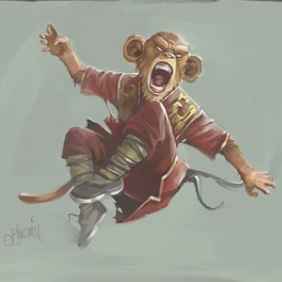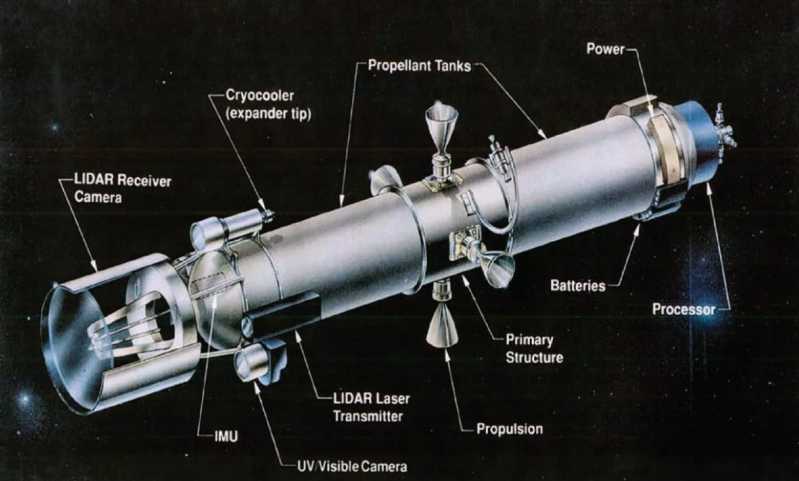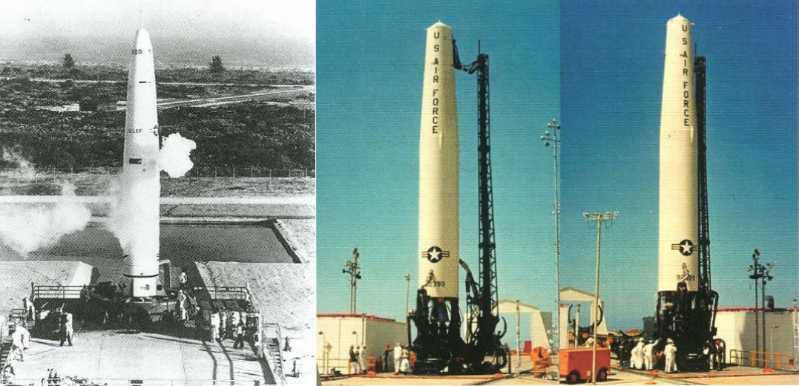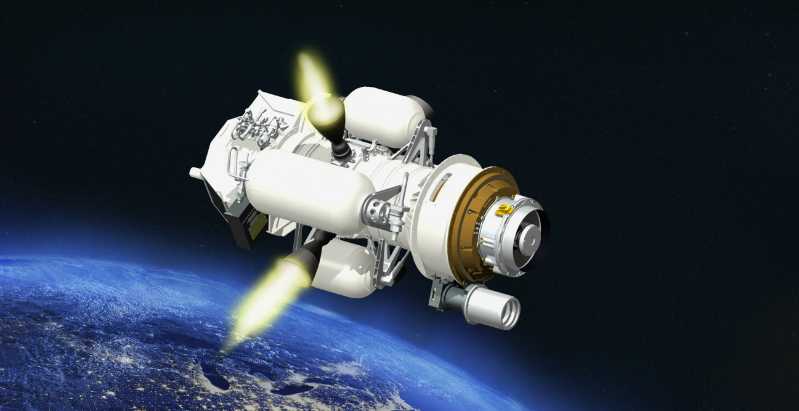1. Incheon Landing
On September 15, 1950, Incheon received the most grand "visit" in hundreds of years. The United Nations fleet, including 4 cruisers and 8 destroyers, consisting of more than 300 ships, had completed preparations including clearing mines and was waiting outside Incheon Port, waiting for MacArthur to issue the final attack order.
Since the beginning of September, in order to disrupt North Korea’s judgment of the actual intentions of the US military, the US Navy and Air Force have bombarded and bombed multiple ports in North Korea.
Not only that, the US military also deliberately created the illusion of landing in Gunsan Port: during the feint attack, the navy consciously concentrated its firepower to bombard Gunsan Port, and the landing troops specially conducted a large-scale "Gunsan Landing Operation" training in Busan, and hung maps of the Gunsan area all over the base.
The most exaggerated thing is that the US military also specially sent some scouts to land at Gunsan Port and wrote slogans such as "Please avoid it quickly" on the houses near Gunsan. It must be said that the US military’s feint attack was quite successful. After this series of operations, the Korean People’s Army strengthened the defense of Gunsan Port. When the fleet full of US soldiers arrived at the outskirts of Incheon Port as planned, there was no sign that Incheon was heavily defended. One of the biggest gambles in human history is about to begin. The outcome of this battle is really important. Even MacArthur can hardly suppress his inner uneasiness.
At 0:00 am on September 15, MacArthur called his confidant Brigadier General Hotney to his cabin, and the two began to "discuss" the landing operation that was about to be carried out. It is not accurate to call it a discussion - all the "conversations" throughout the night came from MacArthur himself:
"The question is, can the surprise attack be realized? Incheon is the only option, there is no doubt about that. There are indeed many difficulties, and it is precisely because of the many difficulties that we have a chance to succeed.
Washington was opposed, and we pushed back the opposition. Whether it is victory or failure, the responsibility is borne by me.
Yes, it is all my responsibility. If I make a mistake, thousands of young Americans will bleed and sacrifice. But there is no war without bloodshed.
As long as I make a mistake, thousands of soldiers will die. I The plan will not go wrong.
The enemy should not have noticed it? Maybe the enemy has made preparations? Once we get stuck in narrow waterways and swamps, we will be shot by the enemy like ducks in a pond.
Perhaps September 15, 1950 will become the most painful day of defeat in American history? What about alternatives other than Incheon? Gunsan? The 8th Army counterattack? "
"No!"
MacArthur suddenly turned around and said loudly to Hotney, "There is no alternative! My decision is comprehensive, and all dangers and difficulties are within acceptable limits!" After saying this, MacArthur’s tone returned to normal. He said to Hotney: "Thank you for listening to me, it’s time to sleep." So Hotney said the only sentence of the whole night, "Good night, Marshal." Then he left. After two and a half hours of debate, MacArthur finally convinced MacArthur for the last time. The order to "start landing" was officially issued, and the Incheon landing officially began.
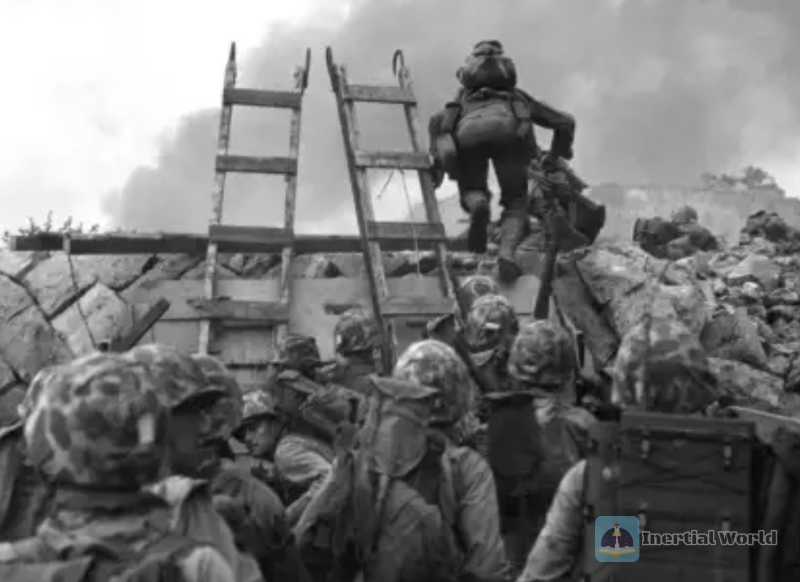
On September 15, Incheon was completely covered by overwhelming artillery fire. Cruisers and destroyers on the sea fired tens of thousands of artillery shells and rockets at Incheon. Carrier-based aircraft in the air dropped countless napalm bombs back and forth. The artillery fire and bombing that covered the sky and the sun completely submerged the entire Incheon Port in flames and smoke. The US military could not even continue to observe the targets on the shore. After the artillery preparation, the US Army’s ace 1st Marine Division was dispatched in full force, and the dense landing craft rushed towards the landing site fiercely. Then, without encountering the expected fierce resistance, the 1st Marine Division successfully landed in Incheon.
No matter what the final reason was, in short, on September 15, the Korean People’s Army did not deploy heavy troops to defend Incheon. The number of Incheon defenders at this time varies slightly in various war histories, but the total number is not much different: about 1,000, anyway no more than 2,000, and all of them are newly recruited soldiers.
At this time, the total number of UN troops preparing to land on the sea of Incheon is 70,000, and the 1st Marine Division alone, which is responsible for the spearhead of the attack, has 25,000. In addition, this does not count the navy and air force that are "only responsible for cooperation." Seeing this, you know that this battle is impossible to fight. Almost all of Incheon’s defense facilities were blown up in the first round of artillery fire. When the 1st Marine Division began to land, it only encountered sporadic resistance from a few surviving warriors of the People’s Army. The "intensity" of this battle can be seen from the number of casualties: throughout September 15, the 1st Marine Division had a total of 20 deaths, 1 missing, and 174 wounded. Moreover, at least half of these were caused by the U.S. military’s own firepower.
MacArthur won the bet.
2. Unexpected Way Out
After learning about the Incheon landing, the main force of the Korean People’s Army in Busan collapsed without a doubt. Facing an enemy with an absolute advantage, this unit had already been wounded and wounded, and it was only relying on high morale that it had gritted its teeth to hold on until now. Knowing that the retreat was cut off, the only factor supporting the People’s Army - morale - was gone. The entire front collapsed in a very short time.
The People’s Army, which was still attacking the south a few days ago, without exception, began to turn around and run north frantically, desperately wanting to run back to their homes before the US military surrounded them.
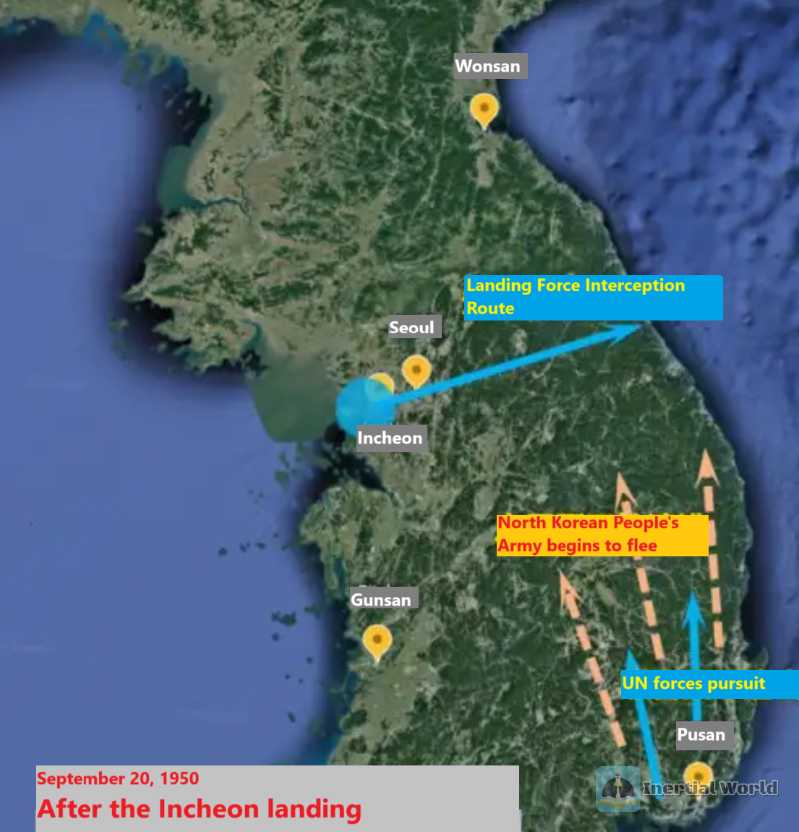
Just take a look at the map and you will know that this wish of the People’s Army is too extravagant. The powerful main force of the US military has been deployed in the empty rear of North Korea. As long as the US military captures Seoul, which is close at hand, it can easily cut off most of the escape routes of the People’s Army, and the only remaining way out in the east will not last long after the fall of Seoul.
At this time, an unexpected figure stood in front of the US military. Choi Yong-gun, deputy commander-in-chief of the Korean People’s Army. There are a large number of outstanding generals in the Korean People’s Army who have been trained in the People’s Liberation Army, and Choi Yong-gun is the most outstanding one among them.
After going into exile in China in 1922, Choi Yong-gun entered the Yunnan Military Academy and the Huangpu Military Academy, and participated in the Northern Expedition, the Guangzhou Uprising and the Northeast Anti-Japanese War. In 1942, Choi Yong-gun became the secretary of the Northeast Committee of the Communist Party of China. After Japan surrendered, Choi Yong-gun returned to Korea and became the first commander-in-chief of the Korean People’s Army.
After the outbreak of the Korean War, Kim Il-sung personally served as the commander-in-chief of the Korean People’s Army, and Choi Yong-gun became the deputy commander-in-chief of the Korean People’s Army. Shortly after the war broke out, Choi Yong-gun withdrew from the front line and was responsible for the defense of the west coast in the rear. At first glance, Choi Yong-gun should have been a sinecure-the main force was in Busan, what was the west coast to defend?
But this unexpected coincidence became the last straw for the People’s Army. After the US troops landed in Incheon on the west coast, Choi Yong-gun immediately organized all the forces he had, most of which were originally intended to rush to Busan: the 25th Independent Brigade, the 78th Independent Regiment, the 13th Division (newly established, not fully staffed), the 87th Regiment of the 9th Division, part of the 17th Armored Division, the Seoul Guard, and the Incheon Guard - just look at the name to know, it is a group of miscellaneous brands, and the total number of this group of miscellaneous brands is less than 20,000.
And what Choi Yong-gun had to face was the 10th Army, the absolute main force of the US Army, which had just successfully landed in Incheon and had high morale. It had the 1st Marine Division and the 7th Division of the US Army, totaling 50,000 people. MacArthur didn’t think there was any enemy in front of him at this time. He asked the 10th Army to take Seoul before September 25. The reason for choosing this date was that MacArthur felt that the Korean War started on June 25, and he could declare to the outside world that he had recaptured Seoul within three months.
In MacArthur’s eyes, giving elite troops 10 days to fight against the rear-line miscellaneous troops was simply too generous. MacArthur sent a telegram to the US government and the South Korean government in advance, asking them to "prepare to return to Seoul as soon as possible." In his eyes, the 25th was not a matter of capturing Seoul. At that time, they should have been preparing to hold a celebration party in Seoul.
However, time slowly approached the 25th, but the 10th Army had not even touched the door of Seoul. MacArthur was so anxious that he had to give the 10th Army a "morning call" every day: Where did you fight today? What? Not in Seoul yet? ...Can you arrive tomorrow? What time will you arrive? Almond, the commander of the 10th Army, was overwhelmed by these calls every day, but he was helpless. The Korean People’s Army in front of him was too difficult to deal with.
Under the command of Choi Yong-gun, the Korean People’s Army performed extremely well. They took advantage of every terrain advantage they could and defended every position until the last moment. Choi Yong-gun kept seizing opportunities to launch counterattacks cleverly, keeping the US military in a tense combat state and daring not to advance in big strides.
On the 25th, the 10th Army had just reached the gate of Seoul with difficulty. MacArthur’s morning call arrived at the headquarters of the 10th Army on time. Almond really didn’t know how to answer, so he had to reply: "It’s only a matter of time to take Seoul."
So, MacArthur understood this sentence as "it can be taken today". At 2 pm on September 25, MacArthur couldn’t wait to issue a statement: "The United Nations forces have occupied Seoul" - at this time, Seoul was full of fire and gunfire, and the difficult street fighting of the 1st Marine Division had just begun.
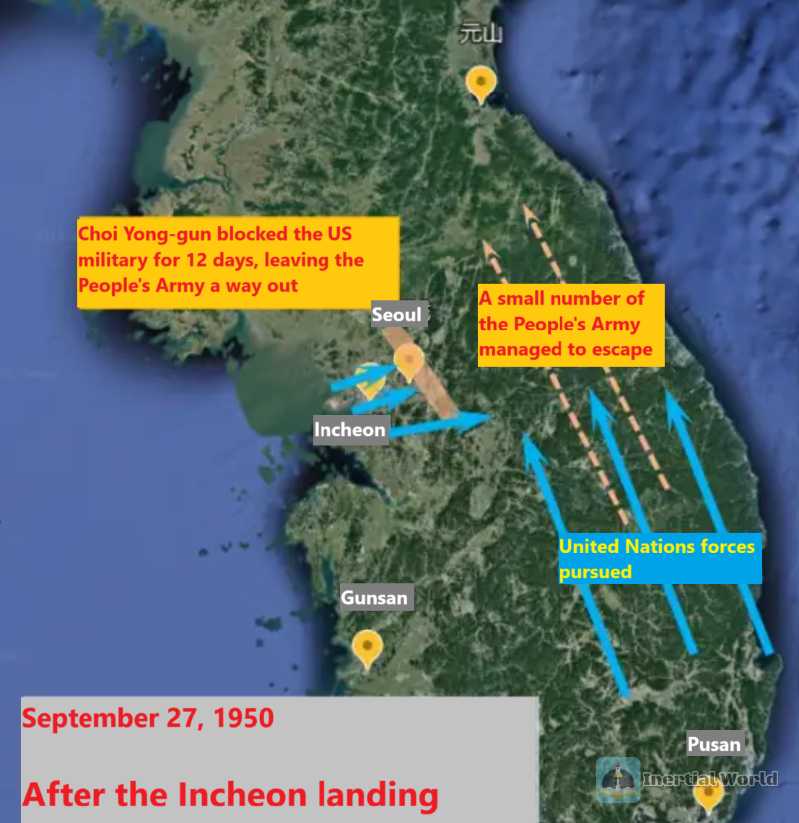
Choi Yong-gun stayed in Seoul until the 27th, and finally commanded the troops to evacuate the Seoul defense line in an orderly manner. As the first commander-in-chief of the Korean People’s Army, Choi Yong-gun did his best to leave a way out for the People’s Army. A large number of the backbones of the People’s Army fled back to their homes along this passage that was not blocked in time. Despite this, under the all-round pursuit of the US military, the People’s Army still suffered an expected fatal blow. After the Incheon landing, the main force of the People’s Army finally had less than 30,000 people left, and all heavy equipment was lost. If it weren’t for Choi Yong-gun, this number would probably be even more worrying, but no matter what, the People’s Army has lost the ability to fight the US-ROK coalition.
The Korean People’s Army has been defeated.
3. 38th Parallel
The Incheon Landing completely changed the situation of the entire Korean War, and as the highest commander of the landing, MacArthur’s reputation was simply soaring to the sky at this time.
After receiving countless praises like a tide, MacArthur made the mistake that ordinary people would make, he was arrogant.
After taking Seoul, MacArthur could not wait to announce the next battle plan of the United Nations:
1. The 10th Army immediately returned to Incheon and boarded the ship to Wonsan Port for landing operations;
2. The 8th Army advanced northward at full speed;
The 8th Army heading north is not a big problem, but the plan of letting the 10th Army land in Wonsan is so outrageous that it is almost outrageous.
You can see how outrageous it is by looking at the picture.
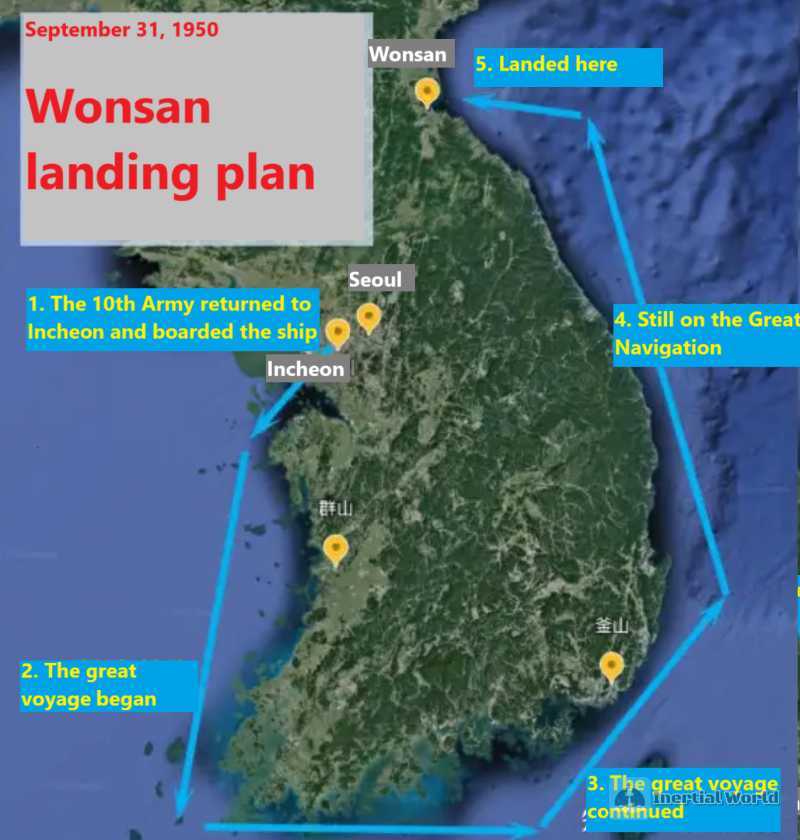
Yes, you read that right. MacArthur wanted the 10th Army to take a detour of the century.
Don’t ask me what MacArthur was thinking. I don’t know. When I first drew this picture, I was always wondering where I got it wrong.
Like you in front of the screen, when seeing this plan, the entire US military high-level had this expression:
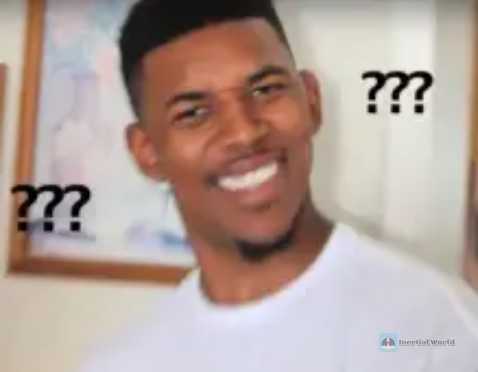
However, at that time, MacArthur was almost a living god in the eyes of the US military, and no one dared to question this outrageous plan - maybe another Incheon? So, all the troops began to act according to the plan. Putting aside the outrageousness of this plan, this plan itself means a very important intention: MacArthur intends to cross the 38th parallel.
In the early days of the Korean War, the United States still had awe for the 38th parallel. The top leaders had not decided whether to cross this line if a war really broke out. After all, once it was crossed, the probability of China joining the war would greatly increase. As the war progressed, this issue was completely forgotten for a time - what 38th parallel? The North Korean army was about to drive it into the sea to feed the fish - until the Incheon landing, everyone suddenly realized that the 38th parallel was not far away.
Whether to cross the 38th parallel, the biggest decision point lies in the key issue contained in it: once the US military crosses this line, does it mean that the Chinese will join the war? If you still remember, Stalin sent a telegram to China in July, the main meaning of which was that once the US military crossed the 38th parallel, the Chinese would be asked to come in to help, and the Soviet Union would provide air cover. Although Stalin did not have any good intentions in sending this telegram, it also shows to some extent a consensus among countries around the world on this strange border line: whether the United Nations army crosses the 38th parallel will directly affect China’s decision on whether to join the Korean War.
This is a very complicated and difficult question to answer. However, MacArthur, the supreme commander of the United Nations, the gambling king of the century, the emperor of Japan, the American expert on Asia, the terminator of World War I veterans, the professional promoted person in the US military, the dating king of West Point, the most tough escape commander in history, and the temporary god after the Incheon landing, firmly predicted: Even if China crossed the 38th parallel, China would not join the war.
MacArthur’s reason is very simple: If the Chinese were to come, they would have come a long time ago, why wait until now? Crossing the 38th parallel or not has no effect at all. From a certain perspective, MacArthur’s judgment is not completely unreasonable: since the war started on June 25, no matter when the Chinese army joined in these three months, it would be a fatal blow to the United Nations.
Especially when the UN forces were beaten by the People’s Army in Busan in August, the Chinese army didn’t have to do anything at that time. They just had to stay in various ports so that all the People’s Army troops could go to Busan and fight with confidence. Now the UN forces might have been driven into the sea.
Based on this judgment, MacArthur firmly told the US high-level officials and President Truman that the Chinese army did not want to come at all, nor did it dare to come. At this time, the United States from top to bottom had completely lost its awe of the 38th parallel. The victory in Incheon not only overwhelmed MacArthur’s mind, but the entire US government was not much better. Those high-level officials who calmed down and called on everyone to slow down were almost immediately drowned in the spit of a group of fanatics.
So, under the constant instigation of MacArthur, the supreme commander of the United Nations, the US government, which was also overwhelmed by the victory, made this major decision that made them extremely painful afterwards: they agreed to MacArthur crossing the 38th parallel. Facts have proved that MacArthur’s prediction of the Chinese reaction should not be said to be biased, but completely wrong. The Chinese had long been prepared to send troops, and the reason why they did not come before was entirely because the North Korean government did not agree - to be precise, Stalin did not agree.
Just after the U.S. military crossed the 38th parallel, the last obstacle to China’s sending troops (Stalin) also disappeared.
Fourth, I just don’t want to win
Since the beginning of the Korean War, the relationship between China, the Soviet Union and North Korea has been in a strange tangle. Among them, the most entangled is Kim Il-sung, the weakest of the three countries. As an agent who was supported by Stalin, Kim Il-sung knew that Stalin was very afraid of his relationship with China. If he showed too much intimacy with China, it would likely cause dissatisfaction with the "great mentor". As a result, from the first day of the Korean War, Kim Il-sung’s behavior was very impolite. When the war broke out on June 25, Kim Il-sung did not even inform China that the war had started. The Chairman did not learn from the newspaper that the Korean War had broken out until June 27.
After the outbreak of the Korean War, China immediately sent Chai Chengwen as China’s diplomatic ambassador to North Korea, hoping to obtain timely news from the Korean battlefield so that China could provide assistance at any time. However, after Chai Chengwen arrived in North Korea, Kim Il-sung ordered all North Korean officials not to communicate with Chai Chengwen, and the "war situation reports" provided to Chai Chengwen by North Korea every day were actually official newspaper articles that all North Korean people could see.
Chai Chengwen’s only means of communication was a dedicated line directly connected to Kim Il-sung himself. As long as Chai Chengwen picked up the phone, he would hear Kim Il-sung’s Chinese "speaking as fluently as the Chinese", and even the translation was saved. The problem was that this phone could not be connected to anywhere else except Kim Il-sung. When Chai Chengwen returned to China to report on his work, Nie Rongzhen, the Chief of the General Staff of the Chinese People’s Liberation Army, gave him a good scolding: "Chai Chengwen, what the hell are you doing? The Premier sent you to collect intelligence, why do you copy other people’s newspapers every day?" Chai Chengwen looked aggrieved: "Kim Il Sung sends me this every day. The phone he installed for me only connects to Kim Il Sung, and all the North Korean comrades dare not talk to me. He deliberately makes me deaf and dumb."
In addition, Kim Il Sung said "yes, yes, yes" to China’s request to North Korea to provide North Korean military maps and send a military observation group, and then there was no follow-up. In fact, it is not difficult to analyze Kim Il Sung’s mentality at the time: the rapid progress of the Korean People’s Army made Kim Il Sung feel that the Soviet Union’s assistance to him was enough to realize his dream. At this point, Kim Il Sung confidently believed that he did not really need the help of the Chinese. In this context, the "great mentor" Stalin clearly expressed his intention not to let China intervene in the war. As a result, Kim Il-sung completely obeyed Stalin’s wishes and adopted a very bad attitude towards China: he not only rejected China’s suggestion to send troops directly to help North Korea, but even had some vague intention of guarding against China.
So, the three countries of China, the Soviet Union and North Korea, which should have easily occupied an absolute advantage, became a mess under the leadership of Stalin, the big brother with a lot of conspiracy:
1. The Soviet Union, which was afraid of confronting the United States head-on, gave China nothing but weapons. Not only did it not send troops, but it also tried its best to prevent China from sending troops. If China sent troops, wouldn’t it show that the Soviet Union did not work seriously?
2. North Korea was full of confidence and felt that what the Soviet big brother said must be right. I am quite capable and don’t need help from others;
3. China, the only country that was sincere and capable of winning this war, looked at these two guys helplessly, shook its head and sighed, and placed the Northeast Frontier Defense Army on the Yalu River.
Soon, the Korean War had the most speechless result for China: Although they had guessed where MacArthur would land, the two teammates were stubborn and seemed to be saying: I don’t want to win, so what? After the Incheon landing, Kim Il-sung, who had gotten what he wanted, was actually very calm at first: Don’t panic, we still have the Soviet Union behind us. As long as the Soviet Union sends troops to help, we can counterattack immediately!
Soon, Kim Il-sung found that the situation was very bad: no matter how he asked the Soviet Union, Stalin had no intention of sending troops. After discovering that the US military was about to cross the 38th parallel, Kim Il-sung panicked.
Facing the crisis of national extinction, Kim Il-sung finally sent a hesitant telegram to Stalin. This telegram first used 70% of the space to introduce the difficulties faced by North Korea, which was actually redundant. Everyone knew that North Korea could not withstand it. The remaining 30% is as follows:
“We are confident that we will overcome the difficulties we face and will never let Korea become a colony and military base of US imperialism. For the independence, democracy and happiness of the people, we will fight to the last drop of blood.
Therefore, we decisively take resolute measures: organize and train some new divisions; deploy more than 100,000 troops mobilized in South Korea in more advantageous combat areas; arm the entire people and prepare for a protracted war.
Nevertheless, if the enemy does not give us time to implement our planned measures, and also takes advantage of our extremely serious situation to accelerate the offensive campaign against North Korea, then we will not be able to stop the enemy by our own strength.
Therefore, dear Joseph Vissarionovich, we cannot but ask you for special assistance.
In other words, when the enemy troops cross the north of the "38th Parallel", we are in great need of direct military assistance from the Soviet Union.
If this cannot be done for some reason, please help us establish international volunteer forces in China and other people’s democratic countries to provide military assistance to our struggle. "
Every time I see this telegram, I have to sigh that the enemy tanks have already arrived at the gate, but Kim Il-sung still has the leisure to write so much nonsense. In fact, he just wanted to say "Brother, are you coming or not? If you don’t come, can you let the Chinese comrades come?" As a result, he wrote so many gorgeous embellishments for this sentence. How humble he must be. In fact, Kim Il-sung’s caution was completely unnecessary. After discovering that the US military was about to cross the 38th parallel, Stalin’s attitude took a 180-degree turn.
Stalin first almost immediately agreed to Kim Il-sung’s request to allow Chinese troops to enter North Korea to help. He wrote back to Kim Il-sung:
"...We think the most acceptable form of assistance is to send volunteers. We have to discuss this issue with Chinese comrades first."
And then, Stalin made a more interesting move. On the same day as the previous telegram, Stalin sent a second telegram to Kim Il-sung in his personal name:
"...In view of the current severe international situation and our agreement with the Americans on international affairs, the Soviet Union cannot directly send troops into North Korea to fight.
We think that organizing an international support force is a good idea, and it would be best if the Chinese go because they are not bound by any international law. So, don’t worry, Comrade Mao Zedong and I will discuss this matter directly."
From Stalin’s reply to Kim Il-sung, he was actually waiting for Kim Il-sung’s telegram. When North Korea was about to be destroyed, the Soviet Union, as the big brother of the entire socialism, would have been disrespectful if it had directly replied to Kim Il-sung, "Big brother, I don’t want to care about you." However, if it had first said to Kim Il-sung, "Wait, I’ll ask China to help you," and then added, "Well, big brother, I’ll mainly help you find China, I won’t come myself." (It could have been said in one telegram, but it was split into two telegrams.) At least, it would have been more acceptable in terms of face.
On October 1, 1950, when China was celebrating the first anniversary of its founding, Stalin and Kim Il-sung’s telegrams arrived in Beijing at the same time. The heavy responsibility of saving North Korea finally fell into the hands of the country that was truly responsible.
Author’s comments
1. Strictly speaking, the Incheon landing did not "reverse" the entire war situation. At this point in September, the UN forces had already occupied all the advantages and built Busan into a stable position. In the absence of other foreign aid for the Korean People’s Army, the possibility of the UN forces’ defeat was minimal.
2. The main significance of the Incheon landing was to turn a victory into a complete victory. If the US military adopted other safe offensive plans, it would basically be impossible to achieve such a complete victory after the successful Incheon landing. Even if the People’s Army was defeated, it would only be a "front line constantly retreating" to the north. In this case, the People’s Army’s troops and equipment can be continuously replenished, and it will not be a tragic situation where the main force is almost completely wiped out.
3. In other words, if there was no Incheon landing, the People’s Army would most likely be pushed back to the 38th parallel step by step, which would lead to a very interesting scenario: in that case, considering that the United States had little intention of joining the North Korean turmoil, the long time of pushing the front to the 38th parallel step by step would most likely have consumed all the patience of the Americans (and triggered domestic debate: why should we care about North Korea?), and the US top brass would most likely push the front to the 38th parallel and withdraw the troops immediately, and would basically not agree to MacArthur crossing the 38th parallel. In this case, the Volunteer Army would not be dispatched (stopped by Stalin).
4. Having said so much, I actually want to express one meaning: among the countless developments of the Korean War, there is almost only one situation in which the volunteers will participate in the war - that is, the Korean People’s Army suffered a devastating blow in a very short period of time. And this development was simply unimaginable before the war began.
5. The wheel of history rolled forward, and eventually pushed the Chinese People’s Volunteer Army to North Korea, the historical stage that the world is paying attention to. Perhaps it was God’s will that the brave Chinese people were destined to write their own magnificent epic on this land.
The protagonist appears
Even after learning the news of the Incheon landing, Kim Il, an ordinary soldier of the Korean People’s Army, did not lose confidence. He believed that Big Brother Soviet Union would definitely come to help them. The situation on the front line became more and more urgent. Kim Il saw the superiors in the command post frantically sending telegrams to the Soviet Union, constantly begging Big Brother to "give direct military assistance." Even if it is only the Air Force, Kim Il thought so. Big Brother has not responded to any message.
On the day when the US tanks entered Pyongyang, Jin Yi looked at the sky in despair. Big Brother’s plane never appeared. Pyongyang fell in flames, and Jin Yi fled the burning capital in tears. He really couldn’t understand why the enemy could find such a powerful helper? Why, at this most critical moment, did the beloved Big Brother abandon them?
After running for countless days and nights, Jin Yi lost all hope and sat down on an empty snowy ground. A warm hand suddenly patted Jin Yi’s back gently. Desperate Jin Yi turned his head and saw a friendly soldier with black hair and black eyes.
A brand new badge was embroidered on the soldier’s uniform.
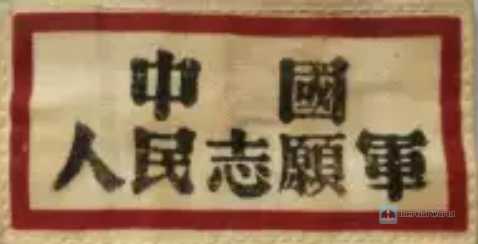
Seeing Jin Yi’s ecstatic expression, the volunteer soldier with snow on his face smiled innocently, revealing his snow-white teeth:
"I heard that you were in trouble, so--"
The snow around Jin Yi suddenly moved. On the snow that seemed to be empty, countless volunteer soldiers stood up from their hiding positions and began to shake off the thick layer of snow on their bodies.
"We are here."


